Top Electrical Problems And Solutions

1. Flickering or Dimming Lights
Causes:
- Loose or Worn-Out Connections: One of the most common causes of flickering lights is loose or worn-out wiring or connections in the electrical system.
- Overloaded Circuit: If too many devices are connected to a single circuit, it can cause the lights to flicker.
- Faulty Light Bulbs: Sometimes, the problem might be as simple as a faulty or incompatible light bulb.
Solutions:
- Check and Tighten Connections: Turn off the power at the circuit breaker and check the wiring connections to ensure they are tight and secure.
- Reduce Load on the Circuit: Avoid plugging too many devices into a single outlet or circuit. Consider redistributing your electrical load across multiple circuits.
- Replace the Bulb: If the bulb is the issue, simply replace it with a new one, making sure it is compatible with your light fixture.
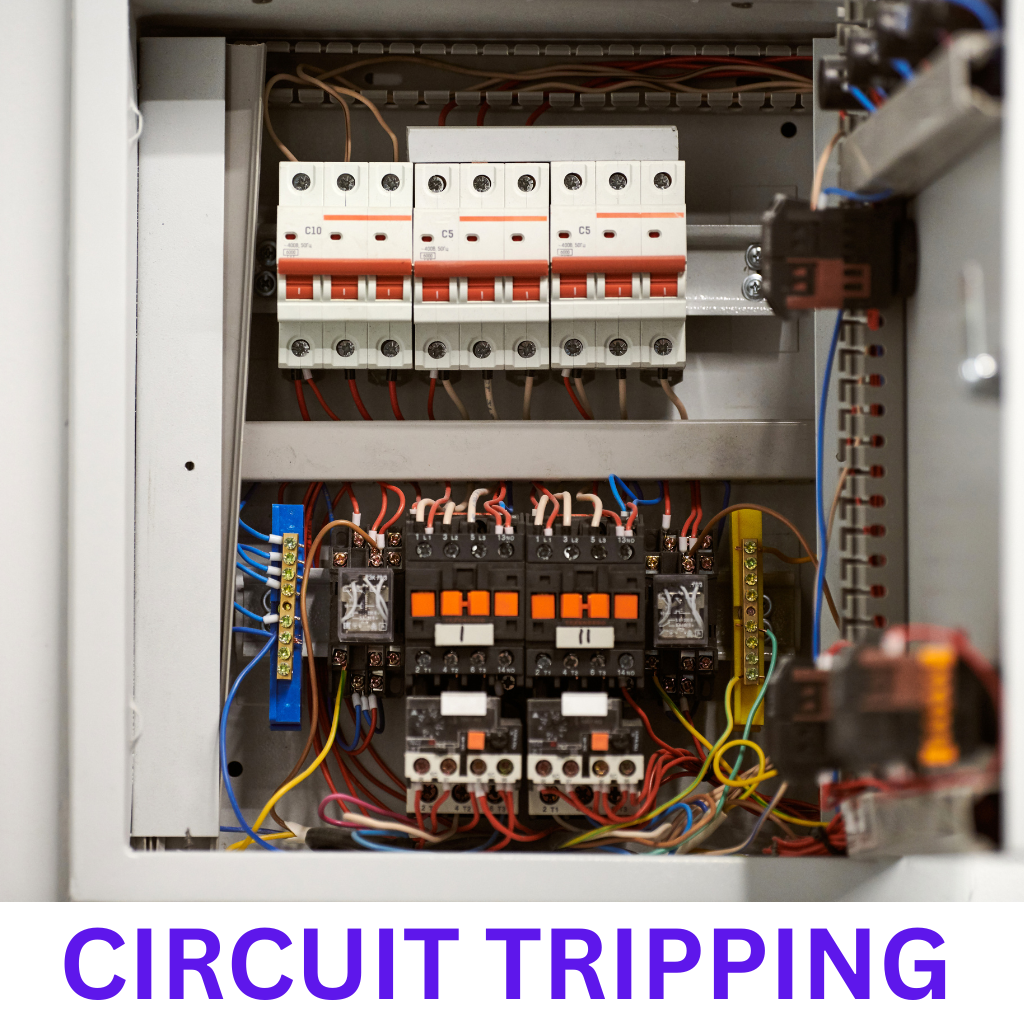
2. Frequent Circuit Breaker Tripping
Causes:
- Overloaded Circuits: Circuit breakers trip to protect your home from electrical overloads, which occur when too many devices are connected to a single circuit.
- Short Circuits: A short circuit happens when a live wire touches a neutral wire, causing a large amount of current to flow and trip the breaker.
- Ground Faults: This occurs when a live wire touches the ground or a metal box, causing the breaker to trip.
Solutions:
- Redistribute Electrical Load: Avoid using too many high-wattage devices on the same circuit. Spread them out across multiple circuits.
- Inspect for Short Circuits: Check for any damaged wires or connections that could be causing a short circuit. If you find any, replace them immediately.
- Use Ground Fault Circuit Interrupters (GFCIs): These devices are designed to prevent ground faults by cutting off the electrical supply when they detect an imbalance in the current.
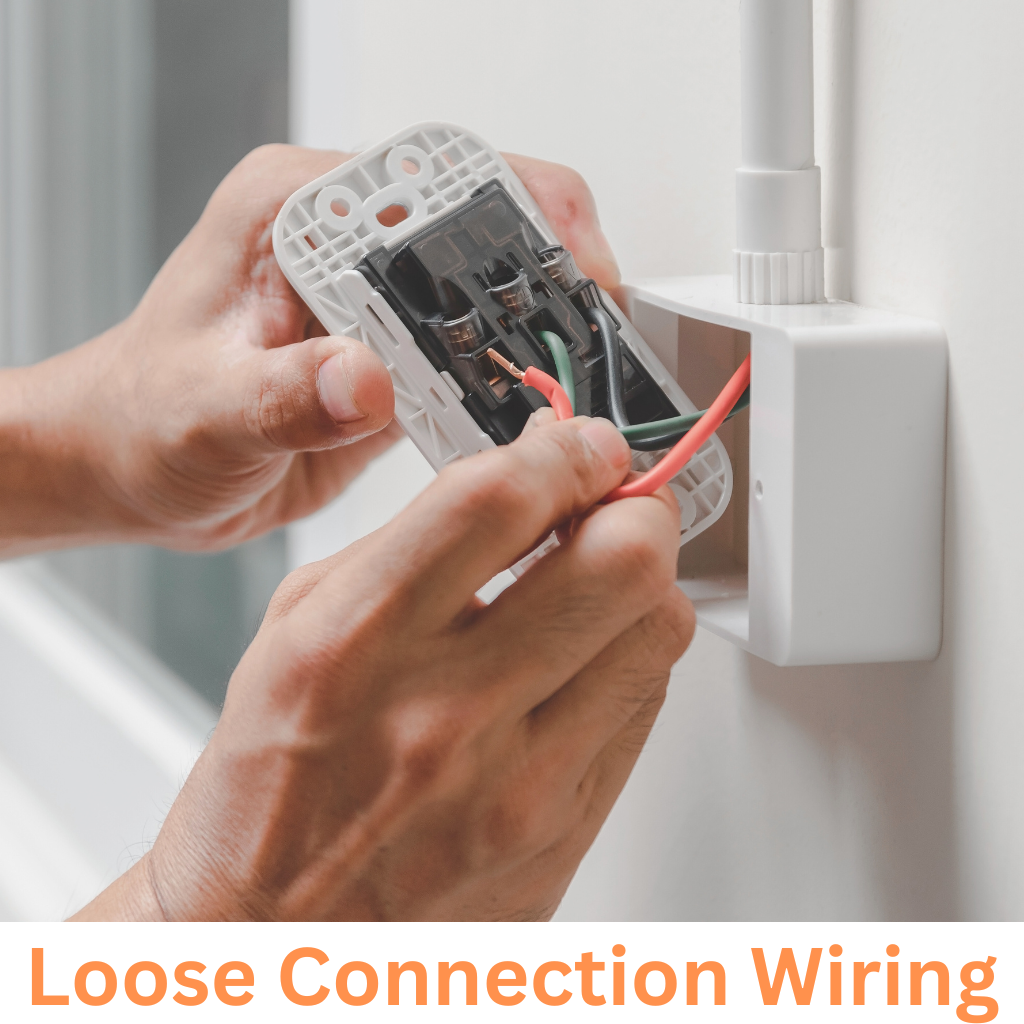
3. Dead Outlets
Causes:
- Tripped Circuit Breaker: If a circuit breaker trips, it can cause one or more outlets to stop working.
- Loose Connections: Loose wiring connections can also cause outlets to fail.
- GFCI Outlet Issues: If the outlet is protected by a GFCI, it might have tripped, causing the outlet to stop working.
Solutions:
- Check the Circuit Breaker: Reset the tripped breaker by turning it off and then back on. If the breaker trips again, there may be a more serious problem that needs professional attention.
- Inspect and Tighten Connections: Turn off the power and check the outlet for loose connections. Tighten any loose wires.
- Reset the GFCI: If the outlet is protected by a GFCI, press the “reset” button to restore power.

4. High Electric Bills
Causes:
- Inefficient Appliances: Older appliances tend to use more electricity than newer, energy-efficient models.
- Leaking Electricity: Sometimes, electricity leaks through faulty wiring or devices, leading to higher energy consumption.
- Increased Usage: A rise in electricity usage, such as using more air conditioning during the summer, can also cause higher bills.
Solutions:
- Upgrade to Energy-Efficient Appliances: Consider replacing old appliances with newer, energy-efficient models that use less electricity.
- Inspect for Leaks: Have a professional electrician inspect your home for any faulty wiring or devices that might be causing electricity to leak.
- Monitor Usage: Be mindful of your electricity usage and try to reduce it where possible, such as by turning off lights and appliances when not in use.
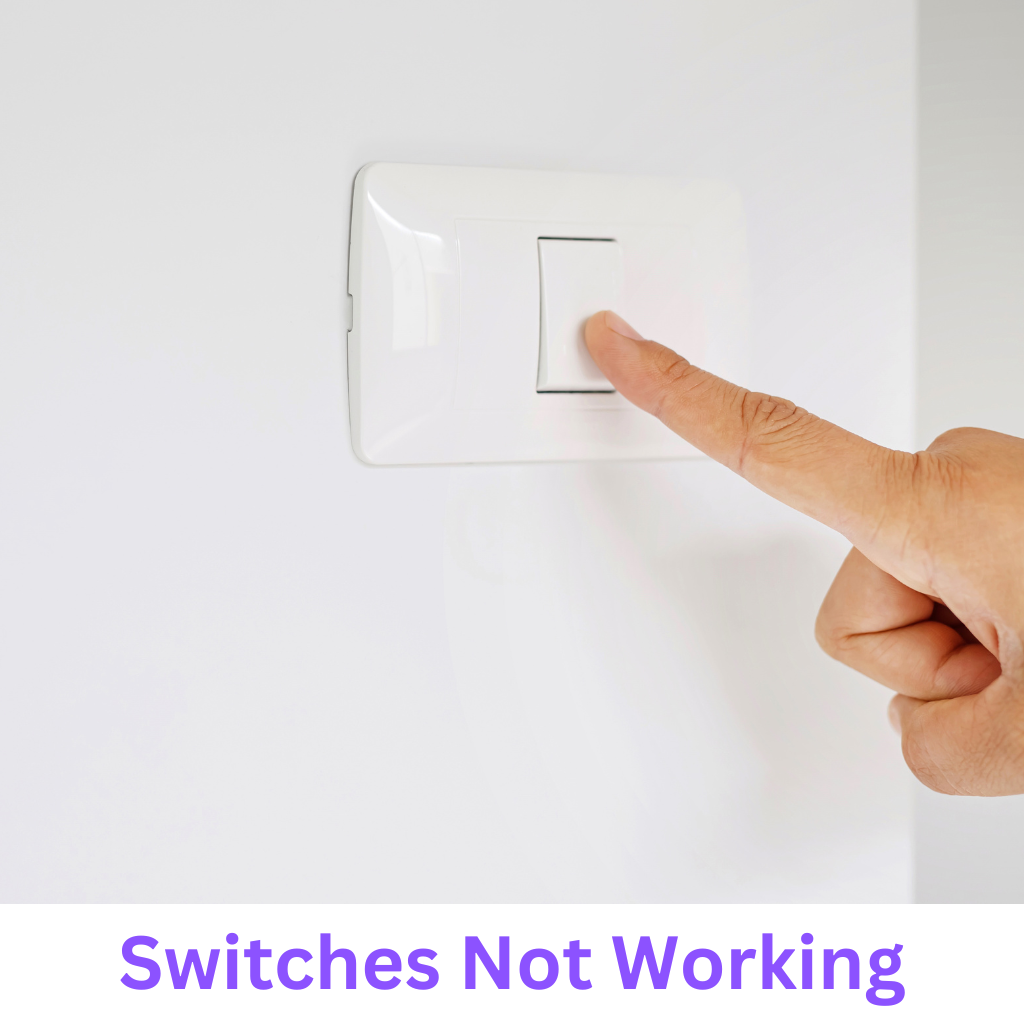
5. Light Switches Not Working Properly
Causes:
- Faulty Switches: Over time, light switches can wear out and stop working properly.
- Loose Wiring: Loose wiring connections can cause switches to malfunction.
- Wiring Issues: In some cases, the problem might be due to issues with the wiring in the switch box.
Solutions:
- Replace the Switch: If the switch is faulty, replace it with a new one. Be sure to turn off the power before doing any work.
- Tighten Connections: Check the wiring connections inside the switch box and tighten any loose wires.
- Call a Professional: If you’re not comfortable working with electrical wiring, it’s best to call a professional electrician to inspect and fix the problem.
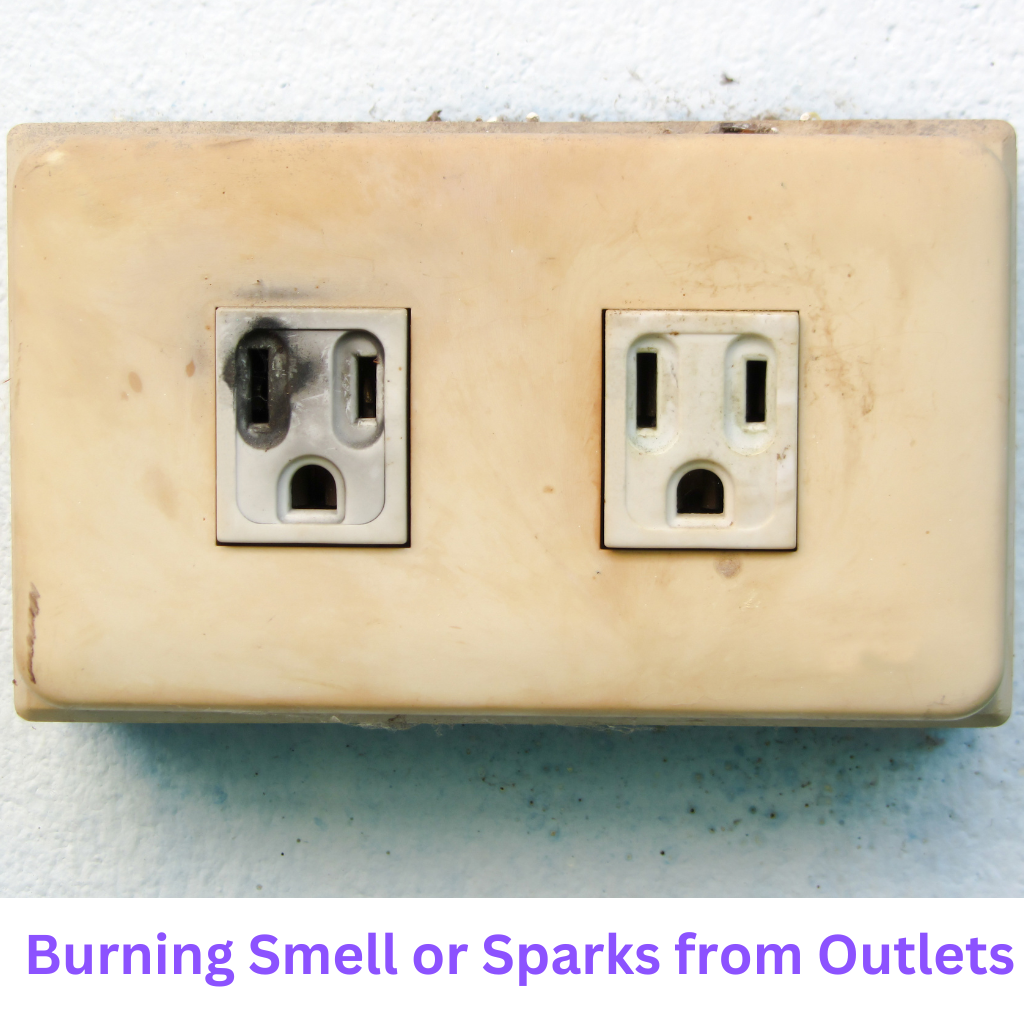
6. Burning Smell or Sparks from Outlets
Causes:
- Overloaded Outlets: Plugging too many devices into a single outlet can cause it to overheat, leading to a burning smell or sparks.
- Faulty Wiring: Damaged or frayed wires can also cause overheating, resulting in a burning smell or sparks.
- Worn-Out Outlets: Older outlets that have become worn out over time can develop problems that lead to sparks or a burning smell.
Solutions:
- Unplug Devices: If you notice a burning smell or see sparks, immediately unplug all devices from the outlet and turn off the power at the circuit breaker.
- Replace the Outlet: Replace the damaged outlet with a new one. If you’re unsure how to do this, call a professional electrician.
- Inspect Wiring: Have a professional inspect the wiring in your home to ensure there are no hidden issues that could cause overheating.

7. Electrical Shocks
Causes:
- Faulty Appliances: Sometimes, electrical shocks can occur due to a faulty appliance with damaged wiring.
- Improper Grounding: If your electrical system isn’t properly grounded, you might experience shocks when touching certain appliances or outlets.
- Worn-Out Wiring: Old or damaged wiring can also cause electrical shocks.
Solutions:
- Unplug Faulty Appliances: If you suspect an appliance is causing shocks, unplug it and stop using it until it can be repaired or replaced.
- Check Grounding: Ensure your home’s electrical system is properly grounded. If you’re unsure, have a professional electrician inspect it.
- Replace Damaged Wiring: Replace any old or damaged wiring that might be causing electrical shocks.
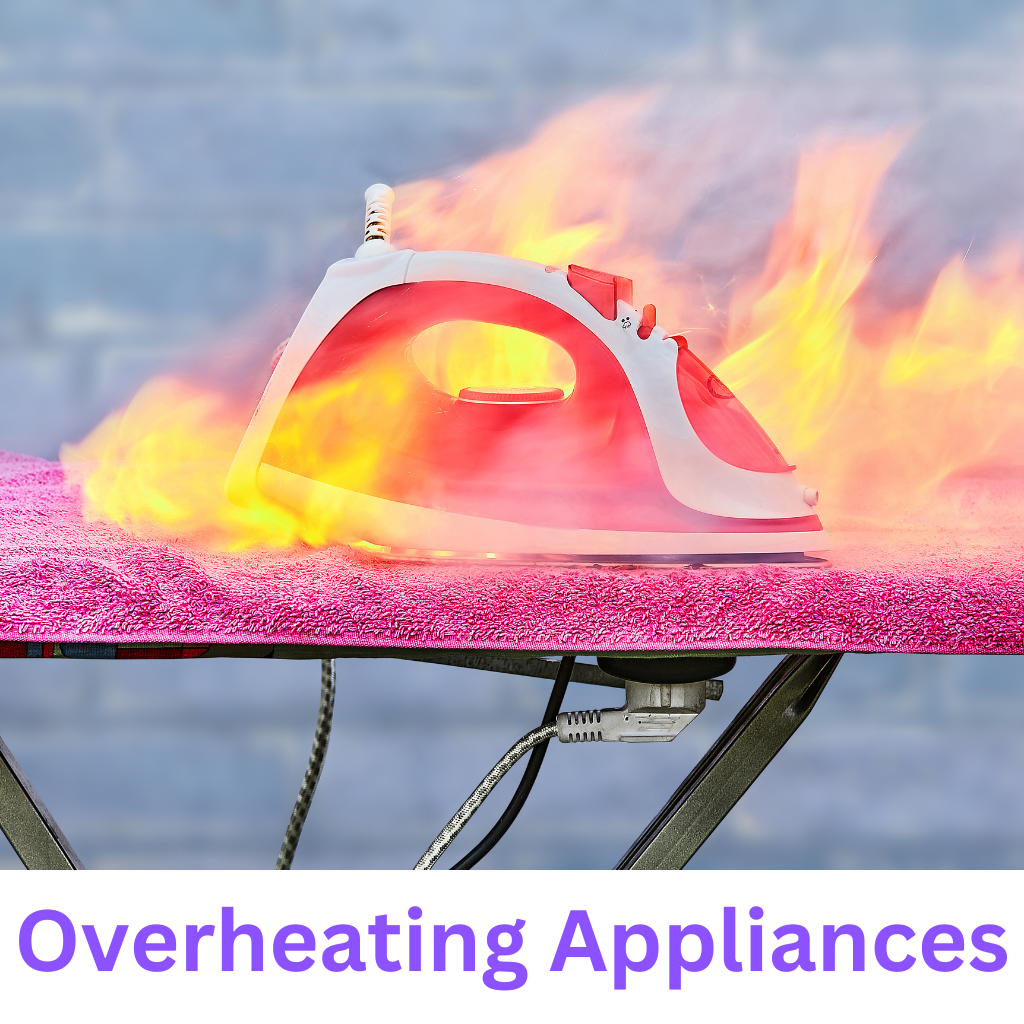
8. Overheating Appliances
Causes:
- Faulty Wiring: Appliances can overheat due to faulty wiring, which causes them to draw more current than they should.
- Blocked Vents: If an appliance’s vents are blocked, it can overheat because it can’t cool down properly.
- Overloading: Running too many high-power devices on the same circuit can cause appliances to overheat.
Solutions:
- Inspect and Repair Wiring: Have a professional inspect the wiring of the appliance and repair any issues.
- Clear Vents: Ensure that the vents of the appliance are not blocked by dust or other objects, allowing for proper airflow.
- Avoid Overloading: Do not overload circuits by running too many high-power appliances at once.

9. Buzzing Noises from Electrical Devices
Causes:
- Loose Connections: Loose wiring connections can cause buzzing noises in electrical devices.
- Faulty Light Fixtures: Sometimes, the buzzing noise comes from light fixtures that are not working correctly.
- Aging Electrical System: As electrical systems age, they can develop issues that lead to buzzing sounds.
Solutions:
- Tighten Connections: Check the wiring connections in the device or fixture and tighten any loose wires.
- Replace Faulty Fixtures: If the buzzing is coming from a light fixture, consider replacing it with a new one.
- Upgrade Electrical System: If the problem is due to an aging electrical system, it may be time to consider an upgrade to prevent further issues.
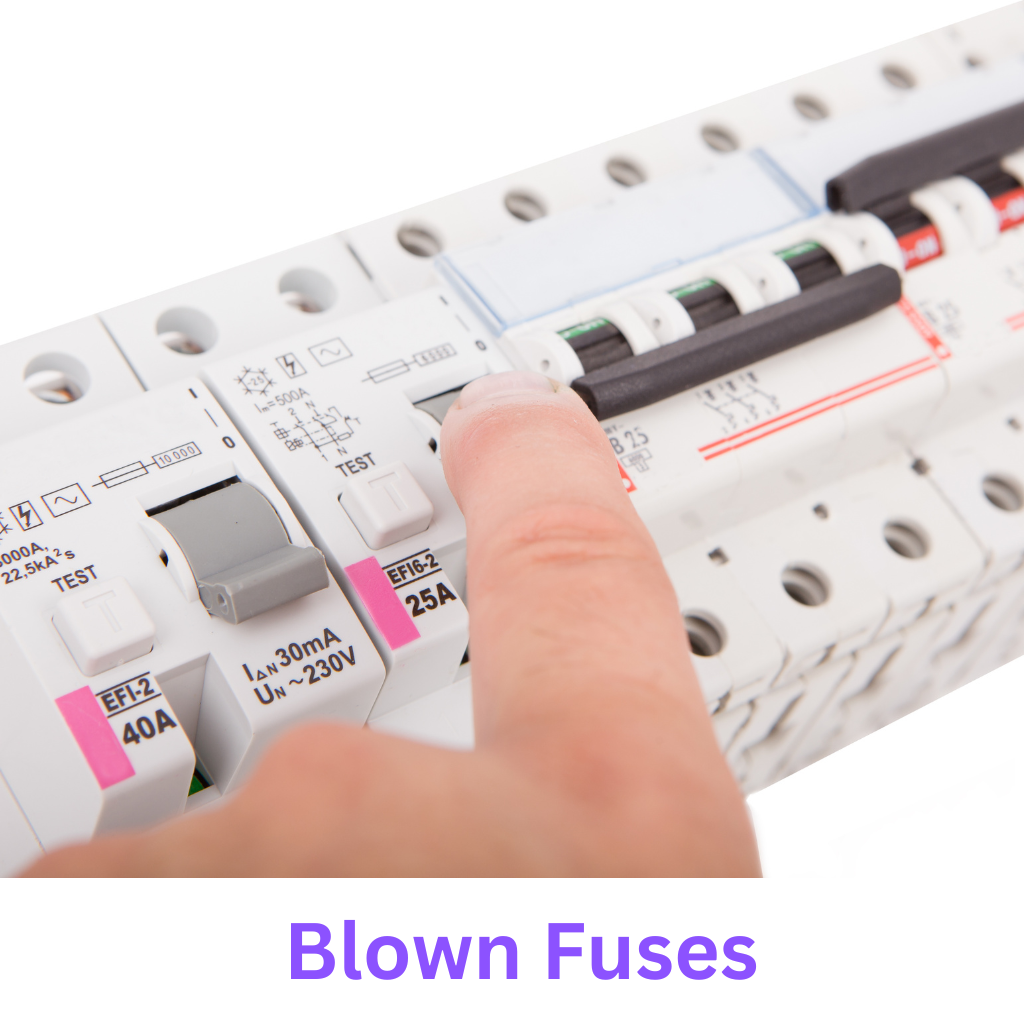
10. Blown Fuses
Causes:
- Overloaded Circuits: A common cause of blown fuses is an overloaded circuit, where too many devices are drawing power from the same circuit.
- Short Circuits: A short circuit can also cause a fuse to blow, as it leads to an excessive current flow.
- Faulty Appliances: Sometimes, a faulty appliance can cause a fuse to blow due to its high power consumption.
Solutions:
- Redistribute Load: Avoid overloading circuits by spreading your electrical devices across multiple circuits.
- Check for Short Circuits: Inspect the wiring for any signs of short circuits and repair any issues.
- Replace Faulty Appliances: If an appliance is causing fuses to blow, replace it with a more energy-efficient model.
When to Call a Professional
While many common electrical problems can be resolved with a bit of DIY work, it’s important to know when to call a professional electrician. If you’re dealing with any of the following issues, it’s best to seek professional help:
- Repeated Circuit Breaker Trips: If your circuit breaker keeps tripping even after you’ve redistributed the electrical load, there might be a more serious issue that requires professional attention.
- Frequent Electrical Shocks: If you’re experiencing frequent electrical shocks, it could indicate a serious problem with your home’s wiring or grounding.
- Persistent Burning Smell or Sparks: A persistent burning smell or sparks from outlets is a sign of a serious electrical problem that could lead to a fire.
- Major Electrical Repairs: If you’re not comfortable working with electrical wiring, or if the repair involves major electrical work, it’s best to call a professional.
Conclusion
Electrical problems can be a source of frustration and, in some cases, danger. understanding common electrical issues and knowing how to fix them, you can keep your home safe and avoid costly repairs. However, it’s crucial to recognize when a problem is beyond your ability

